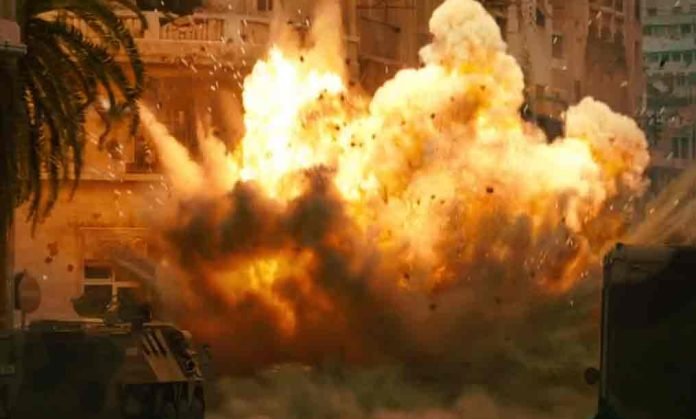Russia’s security agency has raised serious concerns that Ukraine may be planning attacks on the Kursk and Zaporozhye nuclear power plants using dirty bombs. These fears revolve around the possibility that Ukraine could deploy weapons containing radioactive materials, which, if detonated at these nuclear facilities, could result in catastrophic destruction. Russian defense officials have indicated that these weapons have allegedly been transported to Zholtiye Vody, located in Ukraine’s Dnepropetrovsk region.
Intelligence Reports Indicate High Risk of Escalation
Russian security sources have shared this alarming information with Sputnik Media Institute, highlighting the severe threat posed by potential attacks on critical nuclear infrastructure. The military-civil administration in the Kharkov region has also expressed concerns that Ukraine may aim to sabotage Russian nuclear sites. However, Ukraine has dismissed these claims, suggesting instead that Russia might stage its own attacks to escalate the conflict further.
Allegations of Western Involvement in Planned Attacks
Russia’s claims are further complicated by allegations that Western countries, particularly the United Kingdom, are involved in planning these attacks. According to Pro-Russian leader Sergei Lebedev, journalists from several Western media outlets have reportedly arrived in the Sumy and Zaporozhye regions to cover the anticipated events live, suggesting a coordinated effort to document and possibly provoke an incident.
The Threat of Dirty Bombs Looms Over Russia and Europe
The potential use of dirty bombs—devices that disperse radioactive materials without being full-fledged nuclear weapons—on the Kursk and Zaporozhye nuclear power plants has sparked significant fear. While these bombs are not as powerful as atomic bombs, their deployment could still cause widespread radioactive contamination, leading to long-term environmental and health crises.
Russian intelligence reports suggest that NATO and Ukraine might be considering the use of such weapons, although no concrete evidence has been provided to confirm these plans. Nevertheless, the mere speculation has created a tense atmosphere across Ukraine, Russia, and Europe, heightening the already volatile situation.
Russia’s Nuclear Forces on High Alert
In response to these escalating threats, Russia has activated its nuclear missile forces, preparing to defend against potential attacks. This preparation includes readying nuclear missiles capable of being launched from land, air, and sea. Russia has made it clear that if Western countries or NATO initiate an attack, it is prepared to retaliate against major cities in the United States and Europe.
One particularly concerning scenario involves Russia’s Caliber-M nuclear missile, which has a range of 4,500 kilometers. If launched from a Russian submarine near Florida’s coast, this missile could potentially devastate cities like Washington D.C. and New York, as it is believed that neither the U.S. air defense system nor NATO’s defenses would be capable of intercepting the missile in time.
The Global Implications of a Nuclear Escalation
The possibility of a nuclear escalation, whether through the use of dirty bombs or full-scale nuclear missiles, presents a grave threat not only to the immediate regions involved but to global stability. The deployment of such weapons would mark a significant and dangerous escalation in the ongoing conflict, with far-reaching consequences that could affect the entire world.
While these reports have yet to be confirmed, the increasing tensions between Russia, Ukraine, and Western nations underscore the fragile nature of international relations in this conflict. As both sides prepare for the worst, the international community remains on edge, hoping to avoid a catastrophic outcome.
The Need for Caution and Diplomacy
As the situation continues to evolve, the need for caution and diplomacy becomes ever more critical. With both sides accusing each other of potential nuclear provocations, the risk of misunderstanding or miscalculation is high. The international community must work tirelessly to de-escalate tensions and seek a peaceful resolution to prevent a disaster that could have devastating consequences for all involved.




















